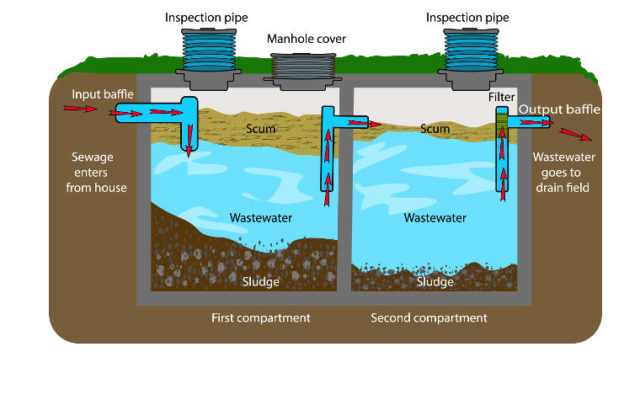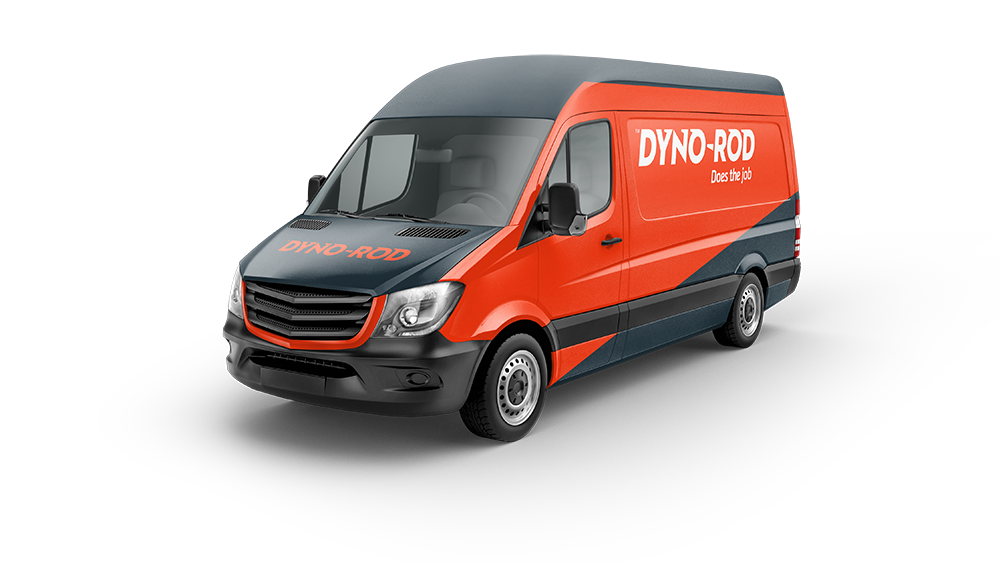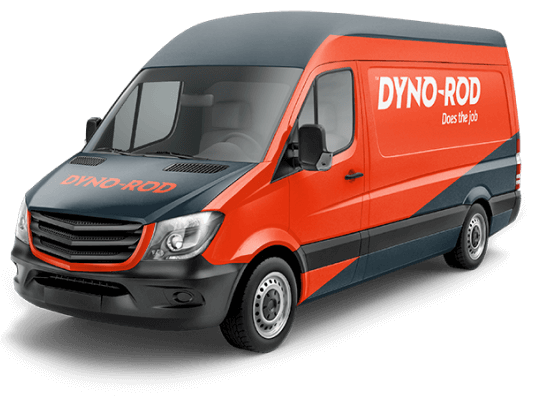Why Is My Sewage Tank Backing Up?
The answer to why your sewage tank is backing up will depend on the type of system you have. Is it a domestic or commercial system? Is it a septic tank, pumping station, or a wastewater treatment plant?
While we work with all types of systems, a few different problems can arise depending on the type of sewage tank. We’ll start with the most common causes for pumping stations backing up, and afterwards, look at how wastewater treatment plants and septic tanks can back up.
Pumping Stations
Sometimes it’s not the pumping station that’s backing up but something outside of the system. It’s for this reason that we first check for blockages “downstream” of the sewage tank. For example, the non-return valves may be clogged or if the pump is discharging treated water to a percolation field there may be a problem there. If so, we may only need to clear this blockage to get everything running smoothly again.
Electrical Issues in a Pumping Station
After we’ve checked for blockages, we’ll next examine the pumps and all associated control equipment for electrical problems. Common causes for a fault include a tripped switch or power supply failure, or an issue with the pump’s controls, as well as faulty float switches or ultrasonics. Unfortunately, the most common issue is a blockage in the pump itself due to rag or other debris. We can lift the pump safely and get it back up and running. Our electro-mechanical team is trained on all the industry-standard systems so can usually pinpoint the issues and promptly get everything back in good running order. After our visit, we will provide recommendations on how the problem can be avoided in future, possibly a maintenance programme or some system upgrades including a remote dial out to alert you as soon as a problem arises.
 Treatment Plants and Septic Tanks
Treatment Plants and Septic Tanks
For a wastewater treatment plant or septic tank, we aim to get the problem solved as efficiently as possible. We start by looking for blockages at the percolation area/drainage field. We’ll then work our way back through the system, looking out for anything that can help prevent the problem from recurring.
Sewage Tank Backing Up: The Most Common Cause
All sewage treatment systems including septic tanks separate out solids from the water through settlement to create sludge. Sludge builds up in the systems over time and eventually, it will reach the storage capacity within the system. This must be removed from the system to prevent clogging up the system leading to the system backing up or overflowing. The quality of wastewater leaving the system at the discharge side will also be affected.
Sewage systems tend to be left to their own devices and forgotten about and maintenance like this can become overlooked until an emergency arises. We can help you stay on top of this maintenance through planned preventative maintenance agreements.
Depending on the type of system you have, the flow through and out of the tank may be by gravity flow or pumped. All mechanical and electrical components wear and tear over time and require maintenance to make sure they don’t fail. We are regularly called by new customers when a pump has finally failed, is blocked or is burnt out. Sometimes the control systems such as float switches or ultrasonic level sensors have become faulty or there may be an issue with the electrical supply. Any of these issues can stop the flow through the tank or plant and lead to the wastewater backing up in the drainage system upstream.
Blockages in a Treatment Tank’s Percolation Field
If your system isn’t discharging to a water body such as river, lake or sea (with relevant discharge licence), it may dispose of treated wastewater to ground using a percolation field. This is a network of perforated pipes which allows the wastewater to be evenly distributed over a large area. This is important so as not to overload one particular area which might be able to adequately soak or treat the wastewater. The location and design of the percolation field should be designed by a qualified Site Assessor and installed as per their design. When functioning correctly, the wastewater undergoes further treatment in the soil where microbes and surrounding flora can continue to break down the contaminants.
Unfortunately, percolation systems can fail either due to the inability of the soil to cope with the volume of wastewater (e.g. waterlogged due to surface runoff) or it gets blocked up with solids. These solids are normally sludge particles carried over from the treatment system due to a fault in the system or lack of sludge removal. The sludge particles can block the percolation pipes (the perforations are very small) or the stone around the pipe may get clogged up. These solids should not escape the tank and are harmful for the environment. This can be a major problem. Wastewater can pond above the drainage field of the drainage system may back up towards the building. If flow cannot be restored by high pressure water jetting it may mean that the drainage field has to be replaced at considerable expense. So the moral is to make sure the sludge in the system is managed proactively. We can help you with this with a preventative maintenance programme.
How To Prevent Sludge from Backing Up Your Tank
Be aware of legal requirements and manufacturer’s recommendations. Under the Water Services (Amendment) Act 2012, you must ensure that the wastewater that your tank discharges isn’t polluting the local environment. If you hold a discharge licence there may be certain conditions to be met also for maintenance and discharge quality. To help avoid environmental damage or legal penalties, you’re legally required to check on your sewage tank at least once annually. It’s essential that you also get it desludged at regular intervals (which we can determine by the size of your tank and by the rate of usage). This work must be carried out by an authorised contractor (make sure to retain the receipt for the work carried out for at least five years) and the waste taken for certified disposal at a licensed facility.
If your sewage tank is backing up and you need advice or assistance, feel free to contact us today on 1800 437 246


